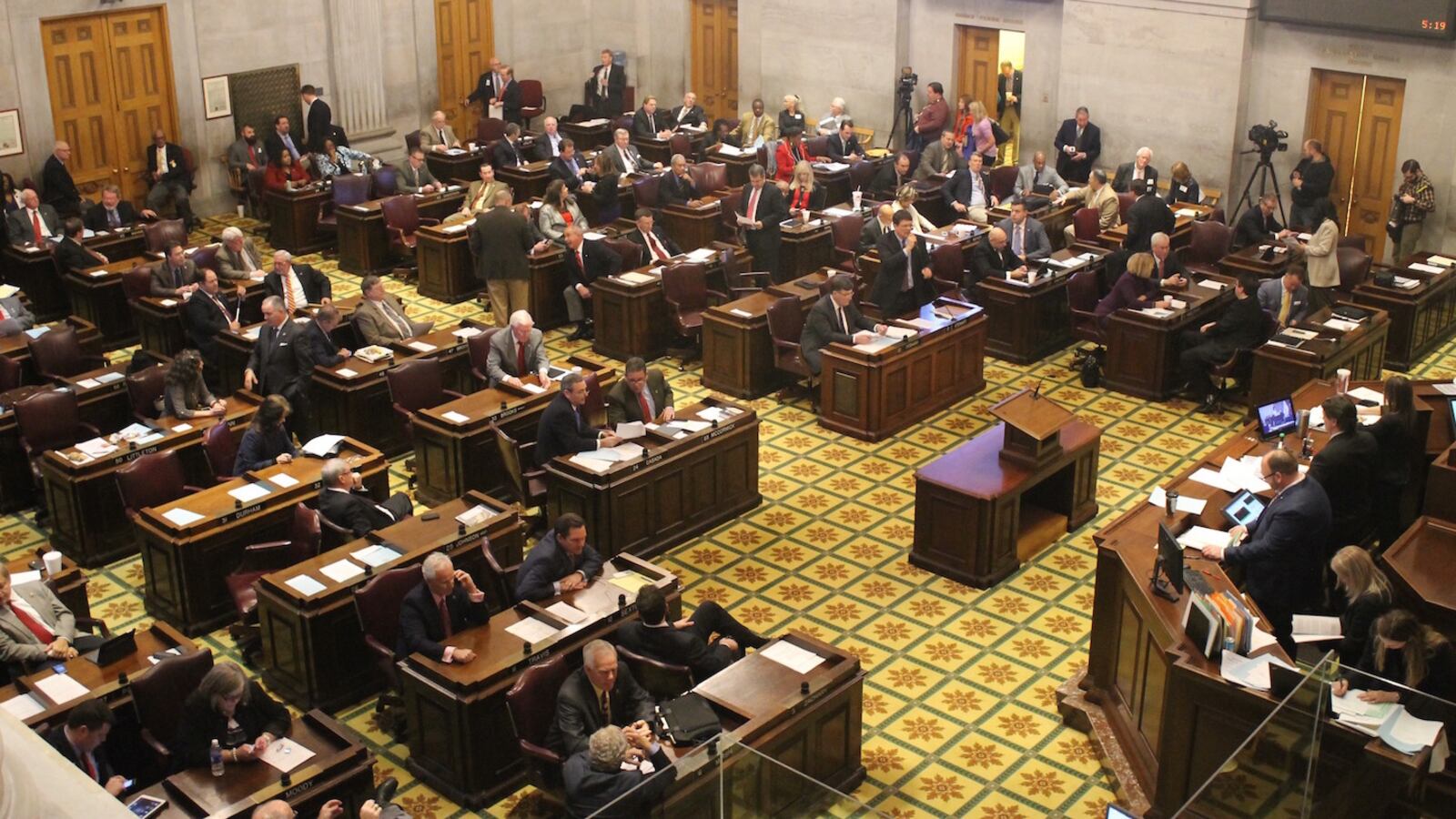Only time will tell which bills passed by the Tennessee legislature will end up altering the lives of the state’s students and teachers.
Sometimes, like in the case of a bill requiring more recess last year, the impact is accidental, and lawmakers have to rush back to undo what they did the year before. And other times, bills end up barely making ripples, like a 2015 law that created a voucher-like program with special education students — that as of now, has only 35 participants.

After nearly three months of meetings, less than half of the more than 150 separate education proposals originally filed with the Tennessee General Assembly are still standing. They touch on issues ranging from school discipline to the Achievement School District.
And 10 measures have already passed both chambers. Of those, four have received Gov. Bill Haslam’s signature, making them law.
Here are some of the topics we’ve been watching, and where they stand.
School vouchers still face cost questions
The biggest decision legislators will likely face in the next few weeks is whether to widen the door for school vouchers by creating a Memphis pilot program. The committees in charge of keeping state spending in check still have to approve the program before it’s considered by the full House and Senate, and opponents won’t let the proposal through without a fight. The proposal would cost the state $300,000 a year — and potentially up to $18 million a year for Shelby County Schools and the Achievement School District, whose students would be the only ones eligible to use the public funds used on them to pay private school tuition. Still, more expensive voucher programs have made it through the finance committees in years past, and limiting the program to Memphis has also limited the overall cost.
A bill to expand Tennessee’s special education voucher program is also still alive. The proposal from Rep. Roger Kane, a Republican from Knoxville, and Sen. Dolores Gresham, a Somerville Republican, also awaits votes in the House Finance committees. The fiscal review committee has not yet posted the potential cost to the state.
The state is changing its approach to low-performing schools
A bill to change the way the state intervenes in low-performing schools has already passed both chambers, and the governor’s signature on it is a foregone conclusion. The proposal from the Tennessee Department of Education came out of its plan to comply with the new federal education law, known as the Every Student Succeeds Act, and significantly curbs the authority of the Achievement School District, the state’s turnaround district.
The weight of test scores in teacher evaluations is (temporarily) going down (again)
Due to the rockier-than-expected transition to Tennessee’s new state test, TNReady, the Department of Education went to lawmakers with another proposal to temporarily tweak how much students’ improvement on standardized tests counts in teacher evaluations. Under the measure, which has already passed both chambers, student growth from TNReady would count for only 10 percent of teachers’ evaluation scores this year and 20 percent next year. That’s compared to the 35 to 50 percent, depending on the subject, that test scores counted in 2014-15 before the state switched to its more rigorous test.
Lawmakers are trying to figure out how often kids should be playing at school
Haslam has signed a law that rolls back a year-old recess requirement for multiple sessions of “unstructured” play a day. Now Tennessee teachers will have weekly requirements, instead of daily ones: 130 minutes of physical activity per week for elementary schools, and 90 minutes for middle and high schools. Meanwhile, a bill to require elementary school students have physical education instruction at least twice a week still awaits votes in finance committees.
The state wants to strike a compromise between school districts and charter schools
The fight over Haslam’s proposed gas tax has continually delayed the House Finance Committee’s vote on the High-Quality Charter Act, a wide-ranging bill written by the State Department of Education in an attempt to address the often rocky relationships between the state’s 105 charter schools and the districts that oversee them. It’s also almost through the Senate, where it’s awaiting placement on the calendar.
Are schools about to get a $250 million bonus from the state?
A bill to increase school spending by $250 million sounds almost outlandish, but Rep. Craig Fitzhugh and Sen. Jeff Yarbro, both Democrats, are receiving a surprising amount of traction for their K-12 Block Grant Act, which reallocates excess tax revenue to the state’s public schools. The money wouldn’t be able to cover salaries or other recurring expenditures. Instead, it would go to the extra school improvement projects that the state’s education funding formula, called the Basic Education Program, doesn’t cover. The bill awaits a vote in the House and Senate finance committees. It doesn’t yet have Haslam’s support, but Fitzhugh says he’s in talks with the governor.

